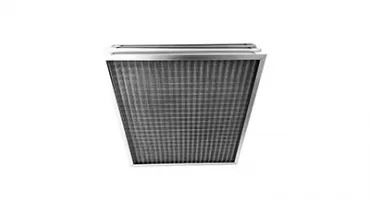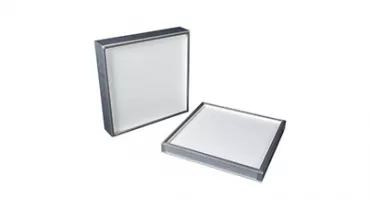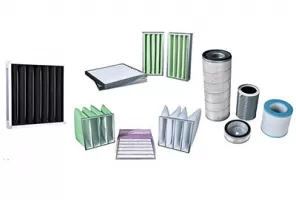 August 04, 2023
August 04, 2023
In modern society, the importance of air quality has garnered increasing attention from people. As environmental pollution becomes more severe, there is a pressing need for an efficient filter to purify the air and safeguard our health. HEPA Filters, widely utilized in the market, hold paramount importance in adhering to proper usage requirements. Only by strictly following these requirements can the normal operation and filtering effectiveness of HEPA Filters be ensured. This article will introduce how to select and utilize HEPA Filters according to specifications, aiding readers in better understanding and utilizing HEPA Filters.
I. How to Choose the Right HEPA Filter?
1. Airflow Capacity
In fact, each HEPA Filter has its own airflow capacity, which is also one of the standards we consider when purchasing. Bigger airflow is considered better, and smaller airflow is also relatively better, in a sense. Generally, when making a purchase, people prefer devices with larger modern airflow. However, experienced individuals remind us that when purchasing HEPA Filters, we should first understand our needs. Sometimes, a large airflow might not be necessary. If we insist on buying devices with high airflow, the budget cost might increase.
2. Applicability
Since purchasing HEPA Filter devices is not a one-time affair, it's advisable to choose reliable purification products with good performance and applicability. Currently, HEPA Filters have been applied in many industries, creating greater economic value for numerous businesses.
3. Parameters
When making a purchase, reference should be made to HEPA Filter standards, such as temperature resistance. We need to know how much heat the filter can withstand and whether our application environment can meet these conditions. These are factors buyers should consider. Additionally, one should consider the working efficiency as well and avoid blind purchases.
II. Function and Principle of HEPA Filters
HEPA Filters are devices specifically designed for purifying the air from fine particles, microorganisms, and harmful gases. Its main principle involves effectively filtering pollutants from the air through layers of filter media. The filter media is composed of multiple layers of fiber networks that can intercept and adsorb tiny particles and harmful gases in the air, achieving the goal of clean air.
III. Proper Usage Requirements for HEPA Filters
1. Regular Replacement of Filter Media: The filter media inside the HEPA Filter is a crucial component for air filtration, but its filtering effectiveness diminishes after a period of use. To ensure filtration efficiency, regular replacement of the filter media is necessary. Based on usage conditions, it's generally recommended to replace it every three months.
2. Regular Filter Cleaning: After using a HEPA Filter for a certain period, dust and dirt accumulate on the filter media, affecting filtration efficiency. Hence, regular cleaning of the filter is also highly important. Monthly cleaning is recommended to maintain a clean filter.
3. Avoid Prolonged Exposure to Moisture: HEPA Filters can absorb moisture from the air during operation. Prolonged exposure to a humid environment can lead to filter damage and compromised effectiveness. Therefore, when using HEPA Filters, it's important to avoid prolonged exposure to moist conditions.
4. Regularly Check Filter Seal Performance: The seal performance of a HEPA Filter is crucial to its filtration efficiency. Regularly checking the seal performance ensures there are no air leaks at the seal, guaranteeing the normal operation and filtration effectiveness of the filter.
IV. Maintenance and Care of HEPA Filters
1. Handle with Care: During the installation and removal of filters, they should be handled gently to avoid causing physical damage. Filters are delicate devices and need to remain intact to achieve optimal results.
2. Regular Disinfection: To prevent the growth of bacteria and harmful microorganisms within the filter, regular disinfection is necessary. Disinfection can be achieved using disinfectants or high-temperature steam, ensuring the hygiene and safety of the filter.
3. Electrical Safety Awareness: HEPA Filters are often electrically powered, so electrical safety should be considered during usage. Avoid exposing the filter to water sources and humid environments to prevent potential circuit shorts or electrical hazards.
Through the introduction provided in this article, it is hoped that readers can gain a better understanding of the proper usage requirements of HEPA Filters. Only by strictly adhering to the relevant requirements can the normal operation and filtration effectiveness of HEPA Filters be ensured, bringing us a clean and healthy air environment. By continuously learning and staying informed about new technologies and methods related to HEPA Filters, we can better utilize this equipment, enhance filtration efficiency, and bring more convenience to our lives and work.
 Feb. 01, 2024
Enhance Air Quality with MERV 8 Washable Filter - Effective and Sustainable
Feb. 01, 2024
Enhance Air Quality with MERV 8 Washable Filter - Effective and Sustainable
 Aug. 21, 2023
Application of Air Filters
Aug. 21, 2023
Application of Air Filters
 Nov. 20, 2024
A Complete Guide to HVAC Air Filters: Everything You Need to Know
Nov. 20, 2024
A Complete Guide to HVAC Air Filters: Everything You Need to Know

